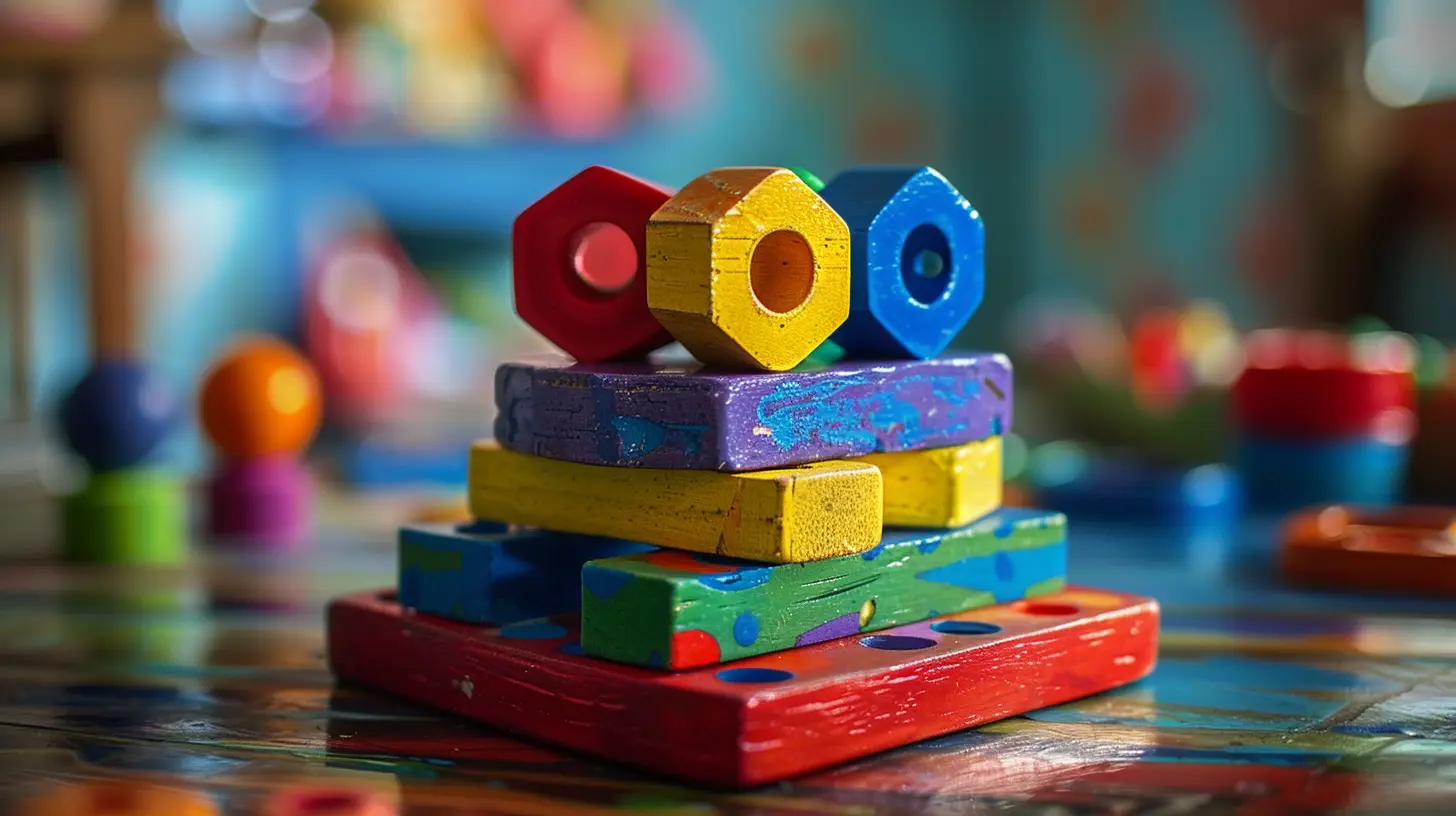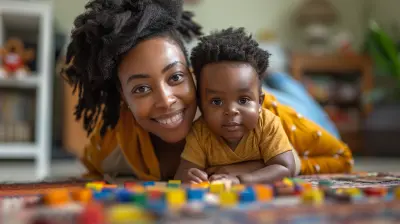9 April 2025
Fine motor skills play a crucial role in a baby's development. These skills involve the coordination of small muscles in the hands and fingers, enabling infants to grab, grip, and manipulate objects. While gross motor skills help babies roll over, crawl, and walk, fine motor skills allow them to pick up tiny objects, button a shirt, or eventually write their name.
But how do you encourage these essential skills from an early age? It’s simpler than you might think! By incorporating small, everyday activities into their routine, you can help strengthen their tiny muscles and lay the foundation for essential movements they'll use for life.

Why Are Fine Motor Skills Important in Infancy?
Fine motor development is about more than holding a toy—it plays a big role in a child’s independence and cognitive skills. Here are a few reasons why these skills matter:- Self-Sufficiency – From holding a spoon to brushing teeth, fine motor skills allow for growing independence.
- Hand-Eye Coordination – Precise hand movements improve a baby’s ability to grasp and manipulate objects.
- Brain Development – Manipulating objects enhances problem-solving skills and cognitive growth.
- Future Academic Success – These skills lay the foundation for writing, drawing, and even playing musical instruments.
Encouraging the right activities early on ensures that a baby's hands and fingers get the necessary workout for future challenges.

When Do Babies Start Developing Fine Motor Skills?
Fine motor skills begin developing from birth. While newborns may not have complete control over their hands, they come equipped with a natural reflex to grasp objects. As they grow, these reflexes shift into intentional movements around 2-3 months of age.Here’s a rough timeline of fine motor skill milestones:
- 0-2 Months: Reflexive grasping; hands stay in a fist most of the time.
- 3-4 Months: Begins intentionally reaching for objects, holds small toys briefly.
- 5-6 Months: Transfers objects between hands, starts using fingers more deliberately.
- 7-9 Months: Uses the "raking grasp" (scraping objects into the palm with fingers), can pick up small objects.
- 10-12 Months: Begins using the pincer grasp (thumb and forefinger), points at things, attempts to feed themselves.
Each baby develops at their own pace, but gentle encouragement can support and speed up their progress.

How to Encourage Fine Motor Development in Early Infancy
Babies need practice to develop and refine their motor skills. Luckily, you don't need fancy gadgets—simple, everyday activities work wonders.1. Tummy Time with Purpose
Tummy time isn’t just for strengthening the neck—it also encourages babies to explore with their hands. Place a few interesting toys within their reach to motivate them to grasp and move their fingers.Tip: Use textured toys or rattles to engage their sense of touch while they reach and grab.
2. Offer a Variety of Grasping Opportunities
Encourage your baby to grab different objects to develop their finger muscles. Choose soft cloth toys, teething rings, and lightweight rattles to introduce different textures and shapes.Game Idea: Hold a soft toy slightly out of reach and encourage your baby to grab it. Celebrate their effort, even if they don’t succeed right away!
3. Let Them Explore with Their Hands
Babies learn through touch. Offer a variety of safe objects for them to feel, squeeze, and move around. Crinkly fabric, silicone teething rings, and textured balls stimulate their curiosity.Pro Tip: Try a sensory board with different textures—soft fabric, bumpy rubber, and smooth plastic—to enhance hand sensations.
4. Use Finger Foods for Hand Strengthening
Around six months, when solid foods are introduced, allow your baby to feed themselves with soft finger foods. Picking up small food items like banana slices, soft cereals, or cooked peas strengthens finger muscles.Bonus: Self-feeding improves coordination and fosters independence!
5. Encourage Hand-to-Hand Transfers
Around five months, babies start transferring objects between their hands. Handing them a small, lightweight toy and encouraging them to switch hands helps refine dexterity.Fun Activity: Pass a small toy from your hand to theirs and watch as they try to move it between hands.
6. Introduce Simple Grasping Games
Play is the best way for babies to develop new skills. Some fun games include:- Reaching for a Toy – Hold a toy just above their hands to encourage stretching and grasping.
- Knock-Over Stacking – Let them swipe at soft stacking cups. Even knocking them over strengthens hand coordination.
- Touch-and-Feel Books – Books with textures encourage hand exploration while also making story time more interactive.
7. Provide Soft and Safe Blocks
Soft blocks are great for tiny hands. Even if they only pat or push them around, they’re practicing essential hand movements.Try This: Stack a few blocks and let your baby knock them down—an early lesson in cause and effect!
8. Encourage the Pincer Grasp
By 9-12 months, babies start using their thumb and forefinger to pick up objects—known as the pincer grasp. Encouraging small-object play strengthens this skill.Try activities like:
- Offering small, safe objects like soft cereal pieces or baby-safe beads.
- Letting them point at pictures in a book.
- Giving them a cloth to pinch and pull.
9. Let Them Scribble (Even Before They Can Hold a Crayon!)
Around their first birthday, babies may enjoy grabbing fat crayons and making marks. Even if it's just accidental scribbles, it’s great practice for hand control.Pro Tip: Use non-toxic chunky crayons or finger paints on a highchair tray for a fun mess-free activity.
10. Encourage Everyday Independence
Simple daily activities support fine motor growth:- Let them hold their bottle or spoon.
- Encourage them to take off their socks.
- Offer a small washcloth to grasp during bath time.
These little actions build strength and boost confidence.

Signs Your Baby May Need Extra Help
Every child develops at their own pace, but if your baby consistently struggles with hand movements over time, it may be worth discussing with a pediatrician. Possible red flags include:- Not reaching for objects by 4-5 months.
- Avoiding using one hand or favoring only one side.
- Not attempting the pincer grasp by 12 months.
- Lack of improvement in hand coordination over time.
Early intervention can help if there are any developmental concerns.
Final Thoughts
Developing fine motor skills in early infancy is all about patience, play, and encouragement. Every grasp, reach, and tiny movement contributes to major milestones down the road. By providing simple opportunities to explore, grab, and manipulate objects, you’re giving your little one the foundation they need for essential life skills.So, start small, have fun, and cheer on every tiny victory—because even the smallest hands are capable of incredible things!




Denise McGee
Who knew my baby’s quest for the remote would double as fine motor skill training? Between grasping Cheerios and launching toys across the room, we’re basically running a toddler obstacle course! Watch out, Olympics—it’s only a matter of time before my little one goes for gold!
April 15, 2025 at 3:01 AM